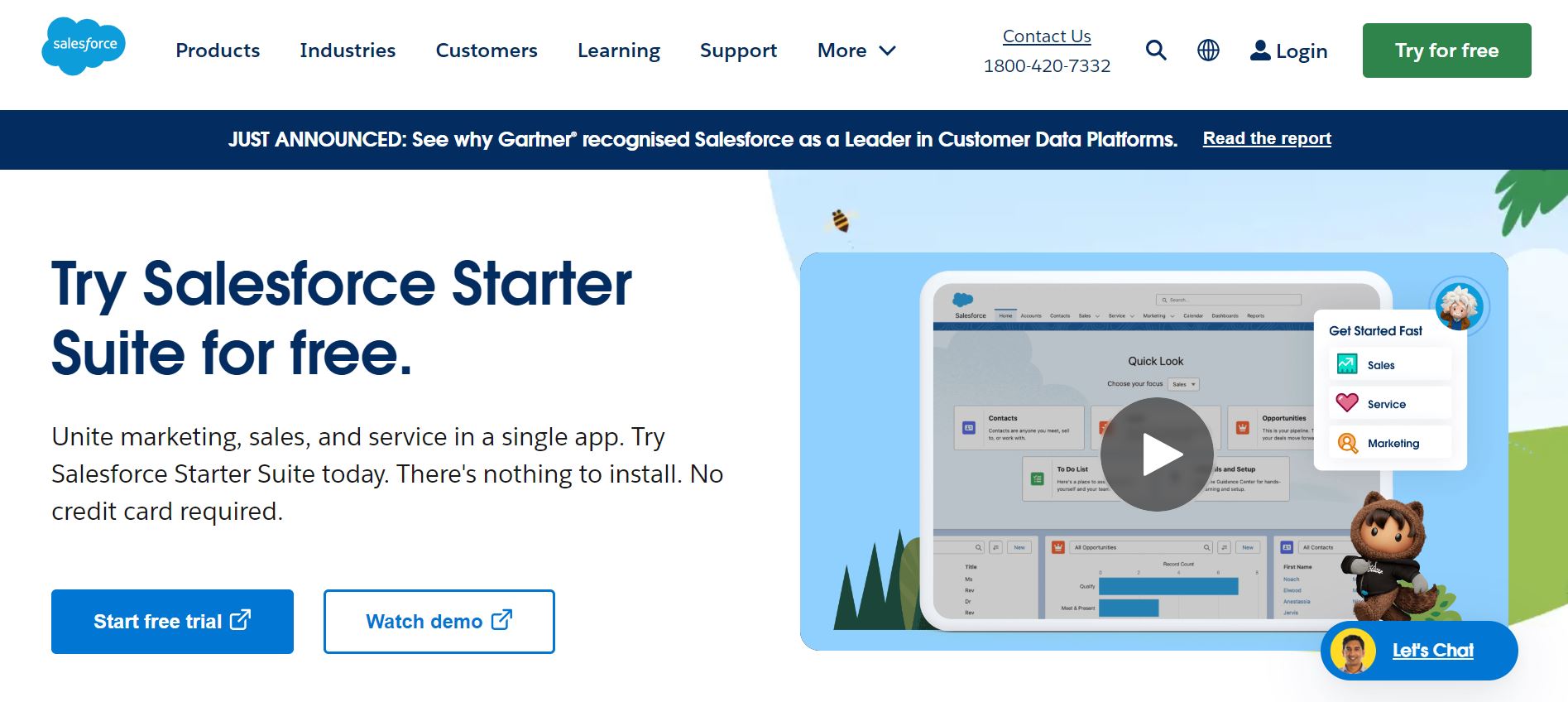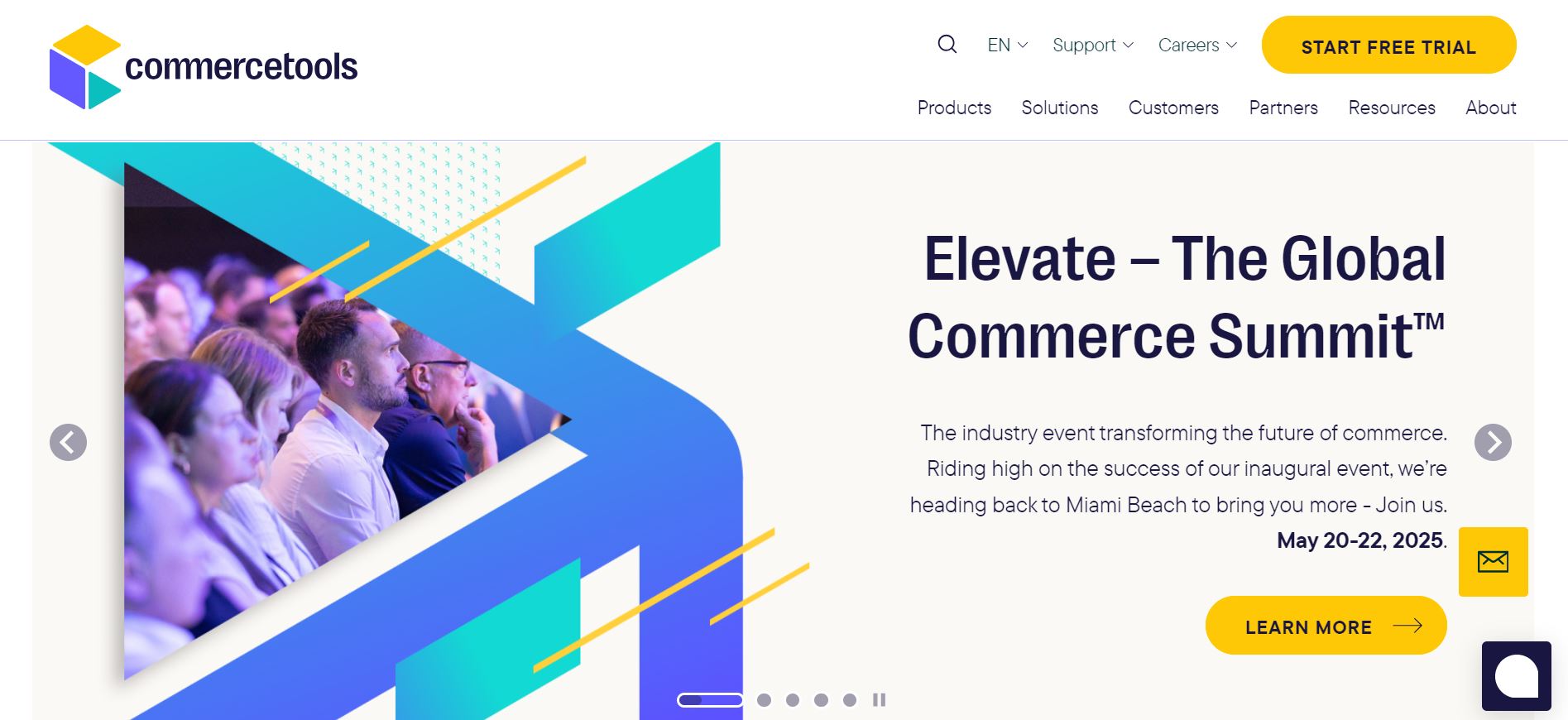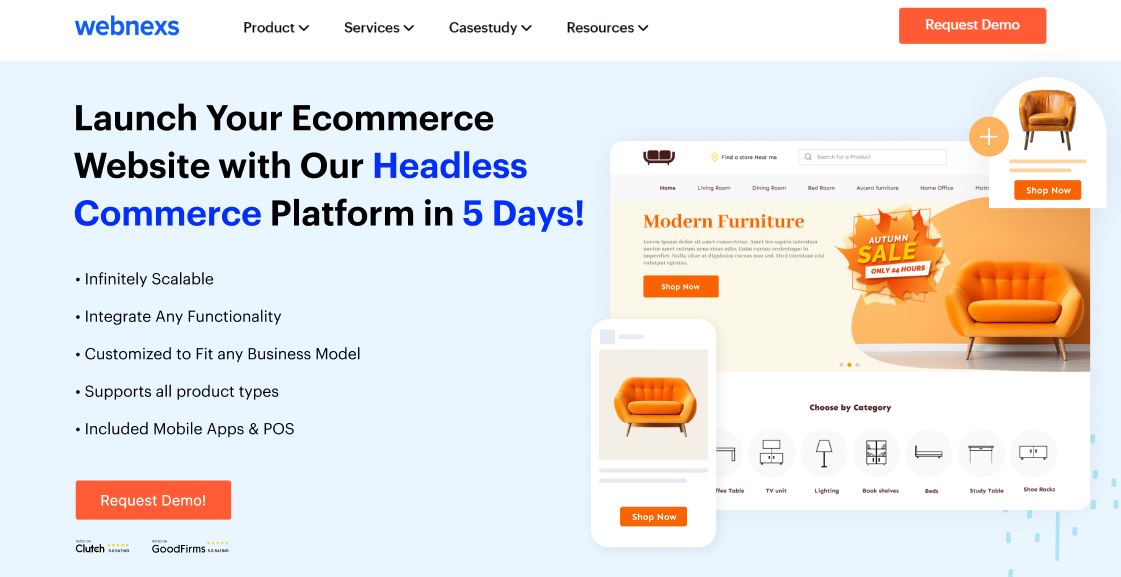Hey readers,In the subsequent discussion, we will explore the 6 best headless ecommerce platforms to consider for starting your online business.In recent years, there has been a noticeable shift in consumer purchasing behavior, with more customers transitioning from traditional brick-and-mortar stores to online shopping. This trend is largely driven by the widespread availability of the Internet and the instant gratification it offers.
Recent statistics indicate a growing trend towards the adoption of headless commerce, with upto 57% of companies projected to embrace this approach by 2024. Among those who have made the switch to headless CMS, 83% have reported notable improvements in time, budget, and revenue.
Looking ahead, it is estimated that ecommerce will constitute 24.5% of global retail shopping by 2025, encompassing both B2B and B2C transactions.
Headless architecture offers businesses an efficient means to meet evolving customer expectations and deliver seamless omnichannel experiences. By embracing a headless approach to ecommerce architecture, companies can effectively cater to the demands of B2B customers while maintaining flexibility across various channels.
What is the Best Headless Ecommerce Platform?
Best Headless ecommerce platform works by separating frontend like the product pages and design, from the backend, such as processing orders and managing inventory.
This separation means you can update how your store looks without affecting how it works internally. For example, you can change the layout or design without messing with the tools that handle things like orders and shipping.
Front end, which includes things like how your store looks and feels, is kept separate from the back end, which manages all the technical stuff. This setup allows businesses to use different technologies for each part, giving them more flexibility to create a smooth shopping experience.
It’s like having the best of both worlds, as most businesses find it easier to create a great online shopping experience using this approach, with 92% saying so.
6 Best Headless Ecommerce Platforms To Consider For Starting Your Online Business
1. Webnexs – Best Headless Commerce Platform
Webnexs stands out as a popular ecommerce platform known for its best headless commerce stores capabilities. Separating the commerce engine from the customer-facing interface enables simultaneous operation of multiple stores across various channels from a centralized hub.
It’s crafted to assist businesses of all sizes in creating distinct online stores tailored to their specific requirements. With its customizable themes and seamless API integrations, Webnexs simplifies the process of adapting and thriving in today’s competitive ecommerce market.
With Webnexs, you gain access to enterprise-level functionality and impressive app-based systems suitable for both B2B and B2C sectors. The platform is designed to support the growth ambitions of businesses, offering scalability and top-notch performance to accommodate expansion at your desired pace.
With Webnexs, businesses can enjoy the following best headless ecommerce platform features:
-
- 100% Customize your platform to fit your business and branding.
-
- Access a wide range of 100+ features to improve your store’s functionality.
-
- Choose from 20+ free themes to create an appealing storefront.
-
- Integrate easily with over 100 APIs for added functionalities.
-
- Host your store with any provider to ensure reliability and strong performance.
-
- 100% Optimize your store for search engines to attract more traffic.
-
- Advertise on platforms like Google, AdRoll, and Bing to effectively reach your target audience.
-
- Get dedicated email support for any issues you encounter.
2. Shopify – Best Headless Commerce Sites

Shopify’s known for its easy setup and tons of apps, making it popular for both beginners and big companies.
Shopify used to be just a regular ecommerce platform, but now it has Shopify Plus, a more advanced version. This is for bigger businesses that need extra features and flexibility. It’s like Shopify’s cooler, more powerful sibling.
With Shopify Plus, you can count on your store running smoothly, even during busy times like sales. Plus, the dashboard is easy to use, even if you’re new to eCommerce.
Their customer service is pretty good too. You can get help in different ways, and Plus users even get their own support person. Plus, there’s a helpful community forum and a detailed help center for any questions you might have.
With Shopify Plus, businesses can enjoy the following best headless ecommerce platform features:
-
- It works with popular tools like Mailchimp and Google Sheets.
-
- Enjoy live chat and phone support, along with access to a dedicated account manager.
-
- You can customize everything from themes to payments.
-
- They have resources and training to help you boost sales.
3. BigCommerce – Top Headless Commerce Platforms

BigCommerce is a leading name in ecommerce and provides a headless commerce options. This means you can separate the back end of your online store from the front end, allowing you to manage multiple stores across different channels all from one central spot.
They provide different front end framework options, like Next.js, Gatsby.js, and Nuxt.js. Each one has its own benefits, such as turning your store into a progressive web app or offering an intuitive framework for building the front end.
BigCommerce’s open API headless architecture, along with its wide range of apps, makes it easy to customize and adapt your store to changing customer needs.
It’s a dream platform for developers, offering lots of freedom and flexibility. Plus, the pre-integrated apps make it simple to connect your store to helpful tools.
BigCommerce promises 99.99% average uptime, meaning your store stays online even during busy times or when you have lots of orders.
With BigCommerce, businesses can enjoy the following top headless ecommerce platform features:
-
- Themes with customizable HTML, CSS, and JavaScript are fully adaptable.
-
- Unlimited checkout customization.
-
- Mobile optimization for a great experience on different devices.
-
- Integration with WordPress.
-
- An easy drag-and-drop page builder.
4. Magento/Adobe Commerce – Best Headless Commerce Stores

Adobe Commerce, formerly known as Magento, adopts a headless approach to ecommerce, offering extensive customization and omnichannel capabilities. This platform empowers developers to create tailored applications to meet the unique needs of their customers, allowing for a personalized ecommerce experience.
Catering directly to customer needs is crucial, especially with the increasing demand for shopping across multiple channels. Adobe Commerce’s omnichannel approach addresses this need effectively.
One standout feature of Adobe Commerce is its robust inventory management system, providing real-time tracking of stock across all locations. Additionally, the platform offers advanced data visualization tools for comprehensive analytics, enabling businesses to make informed decisions and enhance sales strategies.
Adobe Commerce also supports custom integrations through web API frameworks, allowing for seamless integration with CMS, marketing, accounting, and inventory management systems. However, it’s important to note that leveraging this high level of customization may require development expertise or outsourcing.
With Adobe Commerce, businesses can enjoy the following best headless ecommerce platform features:
-
- SEO capabilities to improve online visibility
-
- Sophisticated inventory management system
-
- Comprehensive help center with self-service options
-
- Support for various payment gateways to enhance the customer experience.
5. Salesforce – Best Headless Commerce Option

Salesforce Commerce Cloud, developed by the CRM giant Salesforce, offers the best headless commerce platform with customizable APIs for both front-end and back-end experiences.
As a product of Salesforce, Commerce Cloud effortlessly integrates with the company’s content management system, allowing for personalized customer interactions by leveraging existing Salesforce data.
While Commerce Cloud provides numerous tools and integrations, it may not be as user-friendly for beginners compared to platforms like Shopify. Its multiple APIs might require more time to learn, making it better suited for businesses with a dedicated development team.
With Salesforce Commerce Cloud, businesses can enjoy the following best headless ecommerce platforms features:
-
- Order management platform
-
- Extensive integration options
-
- Support for both B2B and B2C ecommerce
-
- “Endless Aisle” feature for integrating digital and physical touchpoints
-
- Easy mobile optimization
6. Commercetools – Best Headless Ecommerce Company

Commercetools is an eCommerce platform that puts APIs first, allowing for highly customizable customer experiences that can boost average order value and conversion rates. It caters to both B2C and B2B sellers, offering features for both types of businesses.
One of Commercetools strengths is its ability to deploy eCommerce experiences across various touchpoints, including mobile apps, websites, and voice assistants, thanks to its API-driven architecture. With comprehensive APIs covering everything, there’s no need for SQL or other customizations.
While Commercetools offers fewer integrations compared to some other platforms, it still provides various options for payment management, content management, and CMS systems.
Although not ideal for complete beginners due to its API-driven nature, Commercetools boasts a clean and straightforward user interface. However, customer service options are limited, so relying on community support may be necessary for technical queries.
With Commercetools, businesses can enjoy the following best headless commerce platform features:
-
- Order management tools
-
- Cloud-based infrastructure
-
- A/B testing capabilities
-
- Robust backend that remains stable even during traffic spikes.
Headless Ecommerce adopts a modular approach, separating the front-end and back-end components. This separation provides enhanced flexibility and scalability, allowing businesses to leverage diverse tools and technologies for each aspect independently.
Conversely, Traditional Ecommerce relies on an all-in-one solution where a singular platform oversees every aspect, from the user interface to database management and payment processing. Here, the front-end and back-end are closely intertwined, necessitating adjustments to both when altering the front-end.
How do Top Headless Ecommerce Platforms work?
In a headless ecommerce setup, an API connects the front end and back end, allowing them to work together seamlessly. This software facilitates the exchange of content between the two components.
When a customer takes action on your online store, such as making a purchase from their tablet, the front end triggers an API call. This call is then transmitted to the back end, which typically includes the order management system. The back end processes the order and relays the information back to the front end, where the customer can view their order status.
Regardless of whether customers access the store from a smartphone, laptop, or tablet, the process remains consistent. From the customer’s perspective, what happens behind the scenes of your online store is irrelevant, as long as they receive their order promptly and receive excellent customer service.
5 Key Features of Top Headless Ecommerce Platforms
Headless commerce systems are tailored to meet the demands of today’s digital landscape, providing personalized experiences, rapid delivery, and cross-channel accessibility of content.
Here are the five key features of top headless commerce platforms:
-
- Customer Analytics and Insights
Understanding customer behavior is essential to deliver personalized experiences. Headless commerce platforms integrate with analytics tools to track customer behavior and provide valuable insights, enabling businesses to deliver relevant content to their audience.
-
- Headless Storefronts
Headless storefronts allow ecommerce brands to present personalized content effortlessly across various channels. The decoupled nature of headless commerce empowers developers to manage and deliver content flexibly without extensive coding requirements.
-
- Application Programming Interface (API)
Headless commerce platforms prioritize API-first approaches for content delivery, offering agility and flexibility. Content is stored in a database system and delivered through APIs to different platforms such as websites, social media, and mobile apps, ensuring easy content delivery across channels.
-
- Content Delivery Network (CDN)
Headless commerce systems leverage CDNs to distribute content efficiently, ensuring swift delivery to users. This integration enhances website management, particularly for high-traffic sites with a global audience, facilitating seamless content accessibility across channels.
-
- Faster Page Loading
Headless commerce solutions prioritize faster page loading, providing users with a smooth and efficient shopping experience that encourages engagement and retention.
9 Benefits of Best Headless Commerce Platforms
Discover the 9 benefits of embracing a top headless ecommerce platform:
-
- Improved Speed and Performance: Faster websites enhance user experience and reduce bounce rates. Top headless ecommerce platforms deliver content via APIs, ensuring quicker delivery and improved page speed.
-
- Simplified Development and Flexibility: Headless architecture simplifies the development process, allowing teams to preserve their preferred technologies while enjoying flexibility in backend and frontend solutions.
-
- Scalability and Future-Proofing: Headless ecommerce technology is adaptable to emerging touchpoints and technologies, ensuring scalability and performance as businesses evolve.
-
- Effortless Testing of New Technologies: Headless architecture enables development teams to experiment with new solutions without disrupting backend processes, fostering innovation and efficiency.
-
- Full Control of Platform Architecture: With a top headless ecommerce platform, brands have full ownership and control of their platform architecture, enabling customization and optimization as needed.
-
- Enhanced Marketing Efficiency: Marketers can execute various promotional tactics seamlessly with headless ecommerce platforms, driving customer engagement and sales.
-
- Rapid Global Rollouts: Top headless ecommerce platforms facilitate multinational rollouts with multicurrency and multilanguage support, ensuring optimized rankings and global data orchestration.
-
- Improved Customer Acquisition Metrics: Headless ecommerce solutions lead to lower customer acquisition costs and improved user experiences, resulting in higher conversion rates and repeat purchases.
-
- Omnichannel Experience: To meet the demands of modern consumers, the best headless ecommerce platforms enable smooth experiences across multiple touchpoints, enhancing customer satisfaction and loyalty.
How to choose the best Headless Ecommerce Platform?
Choosing the best Headless Ecommerce Platform is crucial for businesses seeking flexibility and customization. Here are key factors to consider:
-
- Integration Capabilities: Look for platforms that offer seamless integration between front-end and back-end systems, ensuring a smooth user experience and efficient order processing.
-
- Content Modeling: Prioritize platforms that support robust content modeling capabilities, enabling consistent and engaging user experiences across all channels.
-
- Payment Gateway Integration: Opt for platforms that integrate with various payment gateways to ensure secure and convenient payment transactions for customers.
-
- Workflow Enhancements: Choose platforms with workflow enhancements architecture to streamline and automate eCommerce workflows, improving efficiency and accuracy.
-
- Customer Support: Select providers that offer responsive customer support to resolve technical issues promptly and ensure smooth eCommerce operations.
-
- Security: Ensure that platforms have robust security measures in place to protect customer data and financial transactions from cyber threats.
-
- API-First Approach: Look for platforms that adopt an API-first approach, allowing for flexibility, scalability, and seamless integration with other systems and services.
-
- Cost: Evaluate pricing structures carefully to find a solution that fits your budget while delivering the desired features and functionalities.
Read More – Best Headless Ecommerce Platforms Examples
Conclusion
To stay competitive online, companies must produce top-notch content and choose the top headless commerce platforms to enhance their customers digital experience.
After reviewing 6 of the best headless ecommerce platforms, we’ve identified solutions that offer immense value, robust ecommerce functionality, and optimization opportunities. These platforms can help you create the ultimate ecommerce digital experience.
Whether your business operates in B2C or B2B ecommerce, a headless ecommerce solution can meet your specific requirements. Webnexs Best Headless Ecommerce Platform stands out as one of the best options, offering customizable front-end and back-end solutions to adapt to evolving customer needs while staying relevant through a headless approach.
Frequently Asked Questions FAQs
-
-
Is Headless CMS Good for Ecommerce?
-
Indeed, a headless content management system can be advantageous for ecommerce brands. Its architecture offers greater flexibility, scalability, and agility, crucial for providing a personalized customer experience.
-
-
What is Headless vs Non-Headless Ecommerce?
-
Headless ecommerce utilizes a separate frontend and backend, offering more flexibility. Non-headless ecommerce, on the other hand, relies on a traditional CMS, limiting flexibility and agility.
-
-
What is the future of headless commerce?
-
Many industry experts know that best headless commerce platform will become mainstream soon due to its flexibility and scalability. The decoupled architecture enhances user experience and optimizes content delivery, indicating a bright future for headless commerce.
-
-
Does every ecommerce store need a headless solution?
-
However, not every ecommerce store needs a headless solution. Choosing the best headless ecommerce platform approach depends on factors like store size, product complexity, and specific business needs.
-
-
Why is headless commerce faster?
-
Headless commerce is faster because it operates with separate front-end and back-end systems, enabling updates without disrupting the overall platform. Additionally, APIs facilitate optimized content delivery across various platforms, ensuring quicker loading times.


